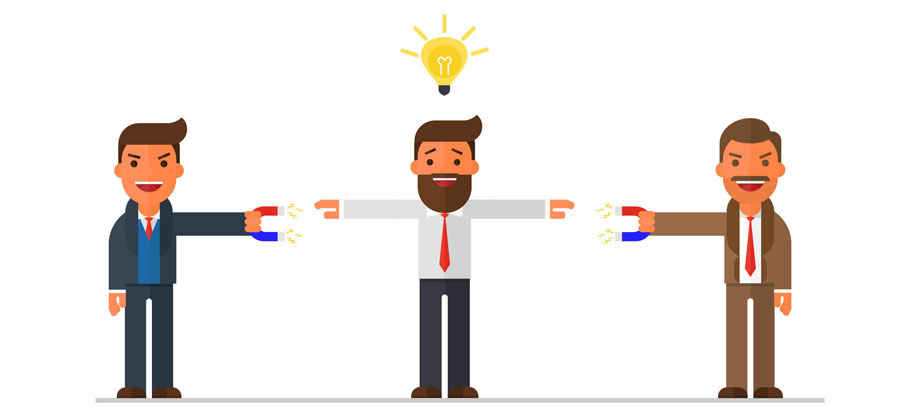
How should you conduct your market research ? A Focus group? Interviews? Which method should you go for ? We often get that question from customers and we often find it difficult to convince customers that focus groups may not be the best qualitative technique around.
In this article we explain you in which settings each method should be applied. In particular we will explain you why focus groups and interviews are complementary.
Ready to improve your market research skills? Read further and don’t hesitate to ask questions.
[The] presumed savings [of focus groups] may be illusory. Properly conducted focus groups are not necessarily inexpensive.
Kidd and Parshall (2000)
Table of Contents
- Focus groups alone are no sufficient
- The different problems posed by focus groups
- The role of the moderator in focus groups
- The price of focus groups
- When to use focus groups
Focus group alone are not sufficient
Focus groups were born after WWII and emerged from the work of Merton. Historically they have not been conceived as a stand-alone qualitative technique. Rather it was thought as an additional methodology to triangulate results.
What is triangulation?
Triangulation is a technical term used in marketing to express the need to confirm an hypothesis or a result through the use of different techniques. Let’s take a concrete example. Observations (a qualitative technique) have allowed you to formulate an hypothesis on the in-store behavior of customers in supermarkets. You obtain a first confirmation of your hypothesis in individual qualitative interviews. Focus groups and exit interview may allow you to confirm your preliminary result. That’s what we call triangulation.
According to their authors focus groups were suitable for the elicitation of details that might otherwise be overlooked. But their authors also recognized that the discussion may quickly be derive to irrelevant issues and suffer the dominance of some members of the focus group.
credits: Shutterstock
Influence, dominance and time issues
Authors generally agree that participants in focus groups do NOT speak or answer questions in the same way than they would in an individual face-to-face interviews. What is said before, how it is said, by whom, does influence what participants might say. This is especially true when you have dominiating characters in the group. Kidd and Parshall (2000) wrote it quite nicely : focus groups “create a far less homogeneous texture of discourse than one finds in individual interviews.” If you want to deep dive into this fabulous piece of of marketing research, you’ll find the complete article below.
Moreover the time available in focus groups for each participant to deepen his/her thoughts is rather limited. Focus groups will use last around 90-120 minutes and gather an average of 6 to 8 people. If you exclude the speech time of the moderator, this leaves on average between 11 and 20 minutes speaking time per participant. Compare it to an individual interview and you immediately understand what’s the best option to get the most out of respondent. The interviews we conduct at IntoTheMinds have an average length of 70 minutes.
getting the focus and the groupThe results depend on the moderator
The success of a focus group depends on the skills of the moderator. Besides the very limitation of the method itself, there is also a risk to obtain bad results due to the incompetency of the moderator.
In their research for instance, Grønkjær et al. (2011) state that :
Our analyses identified how interaction can come to a dead-end, including the risk of hierarchical issues. Based on the analyses from this study, the moderator’s ability to pursue the participants’ utterances may be the reason for coming to a dead-end.
You’ll find the complete article below. It refers to other useful references on focus groups / interview which you may be interested in.
The objectives of a focus groups can best be met when you have an heterogeneous crowd that makes it possible to explore and debate different points of view. However, with heterogeneity comes also the risk of having more expert participants than others. In this particular case, strict moderator control is required.
4273-Article Text-16088-1-10-20110314credits: Shutterstock
Focus groups are NOT cheaper than individual interviews
Market research firms have popularized focus group as an affordable method to study customers’ needs (if you want to know the real prices of market research techniques, read this article). The problem is that most market researchers don’t follow the rules and as a consequence produce cheap results. In a vast majority of the cases, the treatment of focus groups is poor and conclusions are not based on a real objective analysis; rather the market researchers will use his/her notes to draw conclusions.
As Kidd and Parshall (2000) write :
To some extent, the increased interest in and the use of focus groups are based on pragmatic issues of time and cost efficiency relative to individual interviews. However, these presumed savings may be illusory. Properly conducted focus groups are not necessarily inexpensive; unless one is in the business of conducting and analyzing focus groups, the time saved in interviewing may be lost in recruitment, logistics, and trying to make sense out of data that are complex and messy.
If you hire a market research firm to carry out focus groups, make sure to ask them how they will handle and analyze the data. We, at IntoTheMinds, transcribe focus groups, code them and provide mappings of the most important topics expressed.
What’s the price of a focus group ?
Focus groups or interview? The price shouldn’t be a factor of choice since the two methods are quite similar in terms of budget. A focus group starts at around 4000€ (in Paris prices are usually 20% higher). For that budget you can get 6 to 8 interviews. A focus group is therefore in the very same price range when you make the break-down by participant.
When should you use focus groups
You should always prefer individual interviews except in one case. When you want to understand the dynamics between members of a social group, focus groups are the best way to proceed. Imagine for instance that you want to study the purchase decisions made in a family. These decisions are likely to be influenced by children. Having both parents and children in the same room to discuss their purchase behavior is therefore of great interest.
Posted in Marketing.

